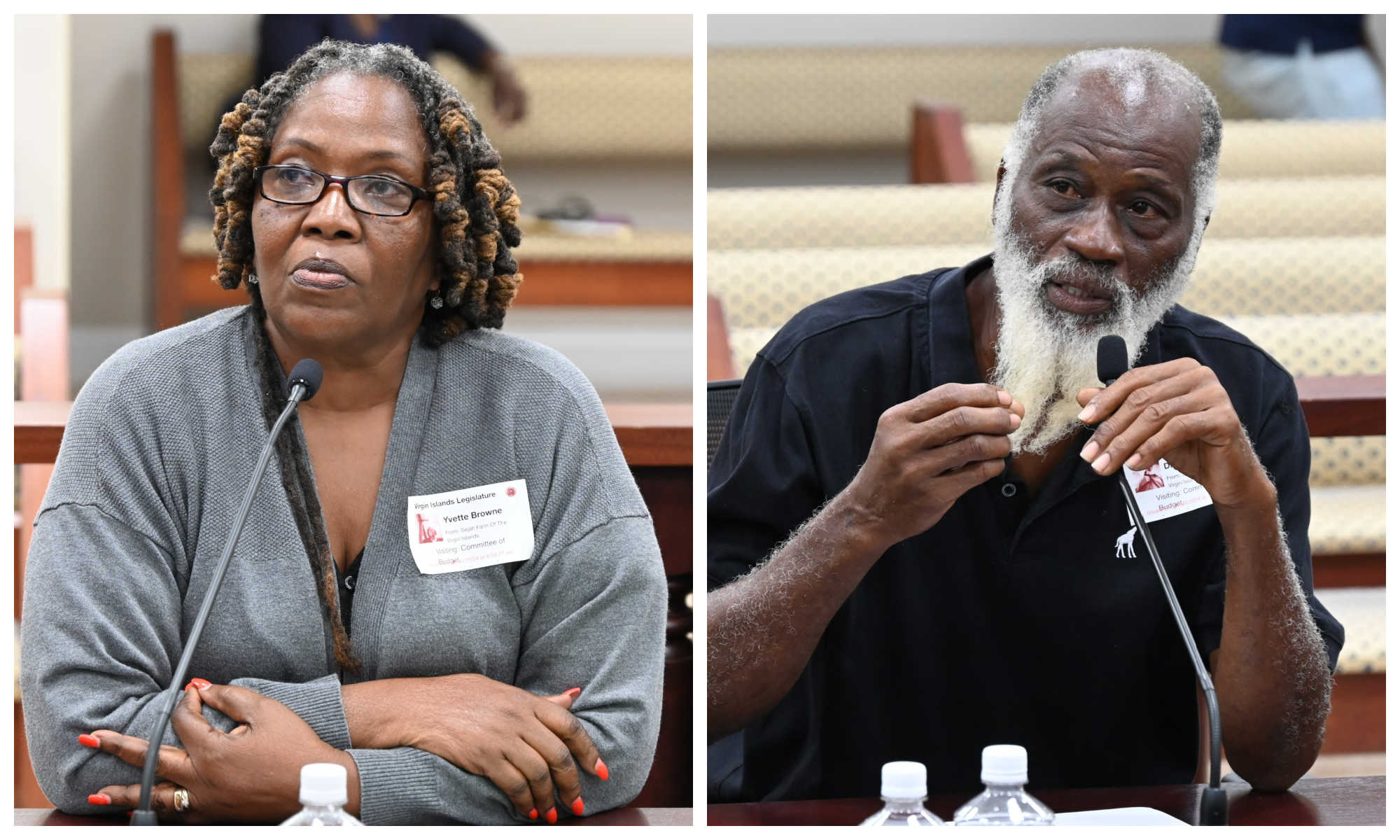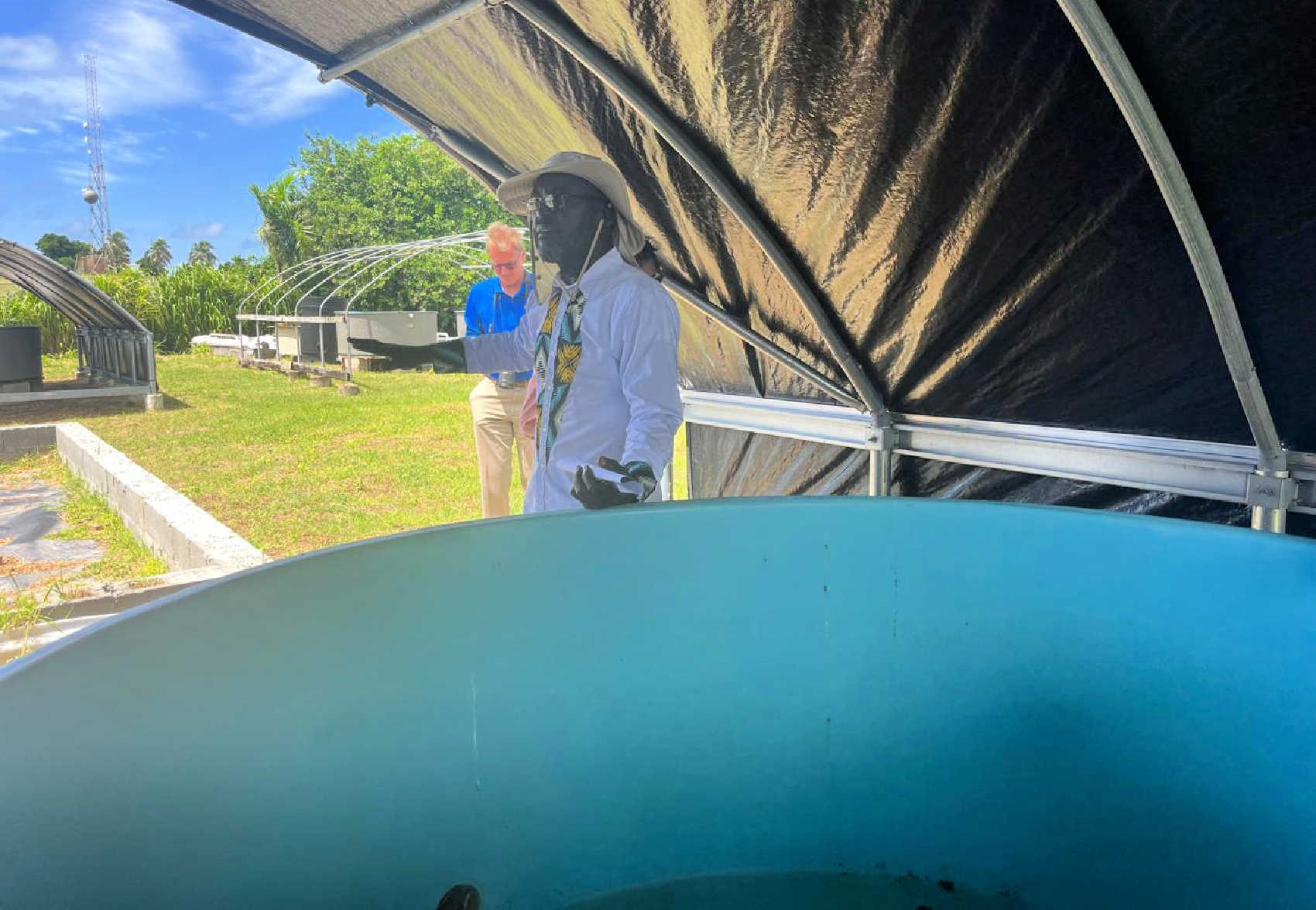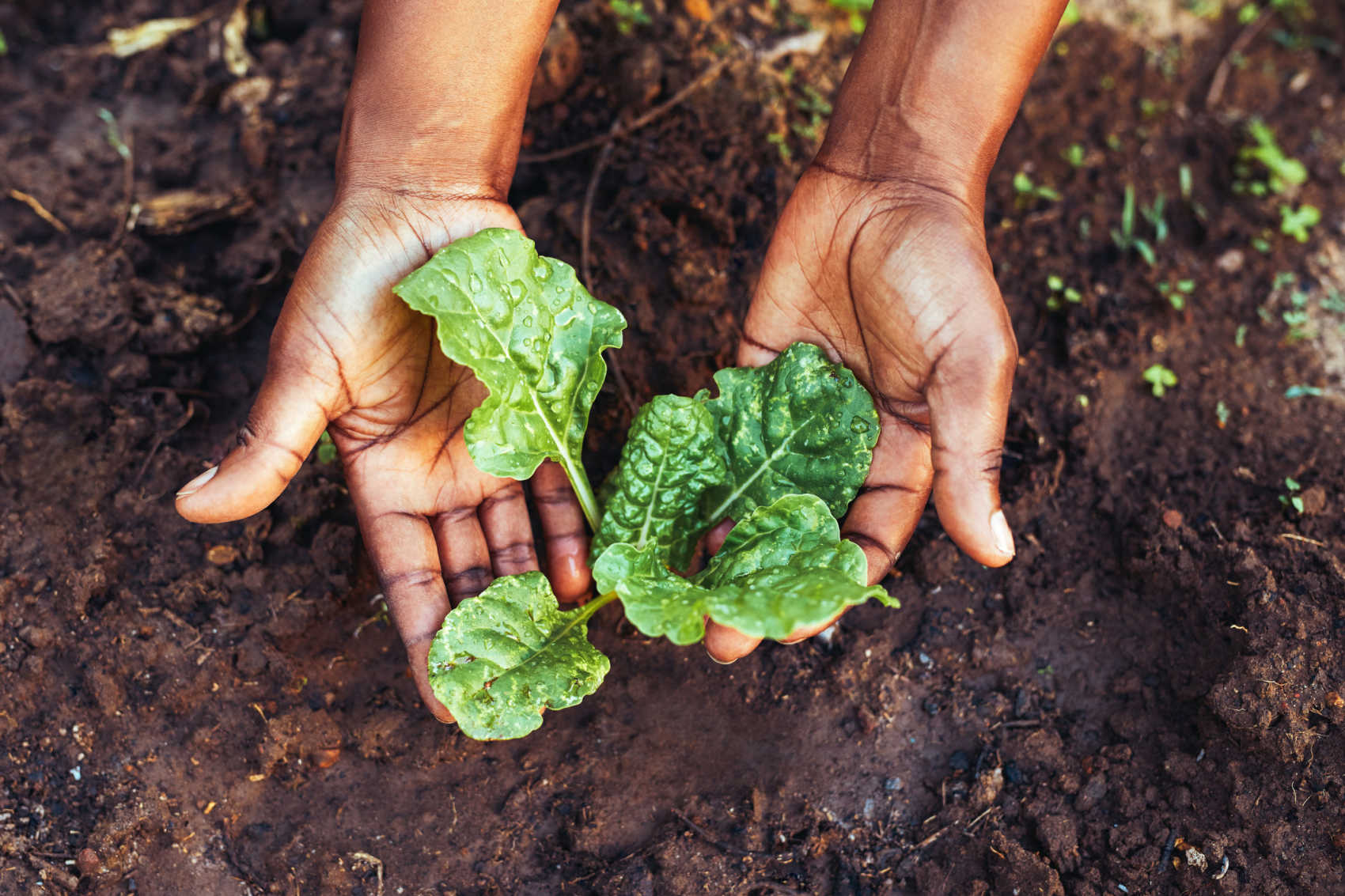Agriculture
St. Croix Farmers Criticize Government’s Neglect of V.I. Agriculture

Two prominent farmers from St. Croix have criticized the Virgin Islands Department of Agriculture for what they see as the slow progress in developing the agriculture sector.
Yvette and Dale Brown voiced their concerns during testimony before the Committee on Budget, Appropriations, and Finance on Tuesday. They sought the committee’s support to extend their lease on government-owned property where their farm is situated.
Yvette Brown, who runs Sejah Farm as a full-time venture, stated that “agriculture in the Virgin Islands has gained a poor reputation for income generation and lacks significant social and economic contributions.” She attributed this to the local government’s failure to regulate and support the agricultural industry effectively. Brown emphasized that the sector has been “without significant government support for over 59 years.”
The absence of support has left “farmers with no choice but to operate in survival mode,” she said. Brown called on the Department of Agriculture to actively contribute to improving the sector’s reputation, describing the change as “timely and vital.” She outlined the benefits of such a turnaround, including improved local food availability and accessibility, attracting markets, increasing farmers’ income, and developing new market opportunities. These changes, she argued, would significantly bolster the local food system and food security. A report by the Iowa State University Food Systems Team highlighted the USVI’s “overwhelmingly high food import rate” of 95 to 99 percent.
Brown warned that without regular food shipments, “we do not have the sustenance to maintain ourselves.” She advocated for promoting and supporting local agriculture to build a robust, resilient food economy that benefits everyone in the territory. She also pointed out that agriculture could create new employment opportunities for Virgin Islanders.
While Sejah Farms remains committed to revitalizing the territory’s agricultural sector, Dale Brown expressed doubt about the Department of Agriculture’s capability to meet this challenge. He cited the recent closure of the St. Croix abattoir and the lack of a “vetted veterinarian,” which he said disadvantages livestock farmers.
Lawmakers expressed agreement with the Browns’ concerns. Senator Javan James, chair of the Committee on Economic Development and Agriculture, announced plans to hold a committee meeting with the Department of Agriculture soon. The last scheduled meeting was canceled because Commissioner Louis Petersen could not attend. “They got away, but this time, they better come ready,” warned Sen. James.
Senator Donna Frett-Gregory expressed frustration with the slow implementation of Act 8716, which established the Local Food and Farm Council. “There are 11 members of that council. Six are government officials and five are appointed. Not one person has come down to the Legislature for approval.” Sympathizing with the Browns, she agreed that “there is no support for the work that they’re doing.”
Frett-Gregory highlighted the potential of St. Croix’s extensive farmland, insisting that the lack of priority given to the agriculture industry is inexcusable.
Agriculture
Innovations in Agriculture in the U.S. Virgin Islands

Agriculture in the U.S. Virgin Islands has faced significant challenges, but recent innovations are paving the way for a more sustainable and productive future. The islands’ unique environment and infrastructure issues have necessitated creative solutions to enhance agricultural practices.
Sustainable Practices and Technological Advancements
One of the critical areas of innovation is the adoption of sustainable agricultural practices. Farmers in the USVI have increasingly turned to renewable energy sources, particularly solar power, to offset high electricity costs and reduce their dependence on outdated infrastructure. This shift not only lowers operational costs but also promotes environmental sustainability.
To address water scarcity, many farmers are implementing advanced irrigation techniques and water conservation practices. Rainwater harvesting systems, drip irrigation, and the use of cover crops are becoming more common. These methods help maximize water usage efficiency, crucial in an area with limited freshwater resources.
Research and Education
The University of the Virgin Islands plays a significant role in advancing agricultural research and education. Through programs like the Sustainable Agriculture Research and Education (SARE), UVI collaborates with local farmers to develop and implement best practices in sustainable farming. Research efforts include studying the viability of alternative crops and grazing grasses that are more drought-tolerant and require fewer inputs.
For instance, agronomists at UVI are exploring the use of teff and Rhodes grass as alternatives to traditional grazing grasses. These species are not only more resilient to drought but also improve soil health and productivity when used in conjunction with leguminous cover crops. Such innovations are essential for maintaining the viability of livestock farming on the islands.
Community and Market Development
Local food systems are thriving due to increased support for farmers’ markets and community-supported agriculture (CSA) initiatives. These platforms enable farmers to sell their produce directly to consumers, ensuring fresh and locally-grown food is more accessible. This direct market approach also strengthens the local economy and fosters a sense of community.
Moreover, there has been a push to develop value-added products, such as coconut oil, hot sauces, and artisanal soaps, which provide farmers with additional revenue streams. The production of niche crops like dragon fruit is also gaining popularity, catering to both local and tourist markets
Government and Institutional Support
The Virgin Islands Department of Agriculture (VIDA) is instrumental in supporting the agricultural sector through various initiatives. VIDA provides technical assistance, land development support, and financial management services to local farmers. Efforts to enhance veterinary services and animal health regulations also play a crucial role in maintaining the livestock sector.
Additionally, federal grants and programs like the USDA’s Resilient Food Systems Infrastructure (RFSI) are being utilized to improve post-harvest food processing and distribution. These programs aim to build a more resilient and sustainable food supply chain in the USVI.
Challenges and Future Directions
Despite these advancements, agriculture in the USVI still faces significant hurdles. Land availability and cost remain pressing issues, with much of the agricultural land either government-owned or privately leased. The islands’ caliche soils, characterized by poor drainage and low fertility, also present ongoing challenges for crop production.
Future efforts will likely focus on further integrating sustainable practices, enhancing research and education initiatives, and expanding market opportunities for local farmers. By continuing to innovate and adapt, the agricultural sector in the USVI can overcome these challenges and ensure a prosperous future for the territory’s farmers.
The U.S. Virgin Islands are witnessing a transformative period in agriculture, driven by sustainability and innovation. Through the combined efforts of local farmers, educational institutions, and government support, the islands are developing a resilient and thriving agricultural landscape.
Agriculture
UVI Launches State-of-the-Art Aquaponics and Livestock Research Facilities

The University of the Virgin Islands (UVI) inaugurated two advanced research facilities on Wednesday, marking a significant milestone in its commitment to sustainable agriculture and resilience. The Aquaponics Facility and the Agricultural Experiment Station Livestock Facility were officially opened during a ribbon-cutting ceremony at UVI’s Albert A. Sheen campus on St. Croix.
The event saw attendance from UVI administrators, local elected officials, and a small group of faculty, staff, students, and community members. The ceremony began at the aquaponics facility, where speakers recounted the long path to its reopening following the extensive damage caused by Hurricanes Irma and Maria in 2017.
Adrienne Williams-Octalien, Director of the Office of Disaster Recovery, emphasized the significance of the project. “This project represents resiliency, food conservation, and sustainability,” she said. “These are the essential steps needed to ensure preparedness for future disasters.”
After the ribbon-cutting, Dr. Henry Awika, Interim Assistant Director and Research Assistant Professor of Horticulture and Aquaculture, led a tour of the aquaponics facility. He explained how the facility will cultivate fish in tanks, with the water being repurposed as a natural fertilizer for plants.
Dr. Awika highlighted the facility’s goals to produce research that benefits local communities. “We are working on lowering the cost of feed by exploring locally available, plant-based materials for the fish diet and reducing energy costs,” he said. He added that in anticipation of an “above-normal” hurricane season, his team is developing structures that can be quickly dismantled and rebuilt to protect farm equipment from storm damage.
The event continued with the introduction of the Small Ruminant Livestock Facility, also known as the sheep farm. Alana Jackson, a former UVI student researcher, discussed the practical applications of their research. “We aim to apply our research to the community by reaching out to farmers and providing sheep for breeding and meat,” she stated.
Local entrepreneur Vicente Cotto, who attended the event, expressed his enthusiasm for the new facilities. “Starting something new comes with many challenges, but these research facilities help smooth out those issues so that farmers like us don’t have to face the same obstacles,” he said. Mr. Cotto described UVI’s new facilities and other opportunities as “hidden gems” that more people should utilize.
The unveiling of these cutting-edge research facilities underscores UVI’s dedication to advancing agricultural research and supporting local farmers in the Virgin Islands.
Agriculture
Virgin Islands Good Food Receives $30,000 Grant to Enhance Local Agriculture

Virgin Islands Good Food has secured a $30,000 grant from the Better Food Policy Fund, facilitated by the Tides Foundation’s collective action fund. This grant will support the Territorial Agriculture Group (TAG) project activities in 2024, with an additional $30,000 expected in 2025.
Virgin Islands Good Food and the Better Food Policy Fund stress the importance of civic collaboration in improving food policy. This funding will aid TAG, a coalition of farmers, advocates, and agricultural professionals dedicated to enhancing food policy and systems in the Virgin Islands, according to a release issued Thursday. TAG, predominantly farmer-led, is committed to integrating accountability, equity, inclusive governance, and leadership into its initiatives to build thriving markets and equitable food access for all Virgin Islanders.
With over fifty farmers, TAG represents a partnership across several farming organizations, all focused on creating a resilient and inclusive food system in the USVI. Collaborating with partners like the Alaska Food Policy Council, TAG aims to drive meaningful change and foster a healthier, more sustainable community.
Since its inception, the Better Food Policy Fund has engaged over 300 food policy council stakeholders to co-develop its initiatives, ensuring alignment with the stakeholders’ needs, the release states.
“We are thrilled to partner with the Better Food Policy Fund to support our mission,” said Sommer Sibilly-Brown, executive director of Virgin Islands Good Food. “This grant will empower us to make a meaningful difference in the Virgin Islands and further our commitment to agricultural growth.”
Robbi Mixon, executive director of the Alaska Food Policy Council, added, “We are excited to deepen our relationship and knowledge sharing with Virgin Island Good Food. Despite being 5,000 miles apart, we have much more in common than not. Supporting each other through reciprocal learning and sharing is an incredible opportunity to support farmers and agricultural growth across the territories and non-contiguous US.”
Representatives from Virgin Islands-based organizations serving farmers and agriculturalists expressed their appreciation for the grant, which aims to build cohesiveness and alignment.
Benita Martin, co-chairperson of We Grow Food Inc.’s Future Development Committee in St. Thomas, stated, “I’m in TAG, representing We Grow Food, Inc. Now is the time we collectively work as one Virgin Islands to move our food system forward to feed the people of the Virgin Islands. Grassroots organizations have always been at the forefront of making positive changes in any community.”
Yvette Browne, a member of TAG and co-owner of Sejah Farm in St. Croix, commented, “This partnership not only fuels our mission but also amplifies our dedication to fostering sustainable agricultural growth in the Virgin Islands. Together, we are poised to enact positive change and cultivate a future where food security and environmental stewardship thrive hand in hand.”
Nate Olive, president of Virgin Islands Farmer Alliance and owner/operator of Ridge to Reef Farm on St. Croix, emphasized the value of TAG as a resource for farmers and others in the agricultural sector. “One thing I like about the group is that no one owns the group as it is everyone’s fellowship group. We originally came together as TAG in response to a government-sponsored farming competitor licensed in Florida that was imported to VI with the support of VI elected officials to compete with our local agricultural industry. Today we continue to stand for fairness in our industry and demand the proper use of both federal and local taxpayer dollars to elevate locally owned farms as viable, competitive endeavors for the ultimate benefits provided to all Virgin Islanders.”
-

 Education1 year ago
Education1 year agoEducation Board Seeks Input on Schools Through Comprehensive Survey
-

 Education2 years ago
Education2 years agoCTE Board Enthusiastic About New Curriculum Standards, Yet Anxious Over Apprenticeship Support
-

 Crime2 years ago
Crime2 years agoRegistered Sex Offender Detained for Illegal Firearm Possession During Annual Surveillance Drive
-

 Videos3 years ago
Videos3 years ago2022 Gubernatorial Election: Voters Speak Out
-

 Development1 year ago
Development1 year agoCosts Surge as Donoe Estates Housing Project Resumes with New Contractor
-

 Videos3 years ago
Videos3 years agoGubernatorial Teams Celebrate St. Croix’s Bull & Bread Day
-

 Videos3 years ago
Videos3 years agoWakanda’s Female Might: A Dive into ‘Black Panther: Wakanda Forever’
-

 Crime2 years ago
Crime2 years agoSt. John’s Westin Resort Scene of Armed Robbery, Prompting Heightened Police Vigilance




